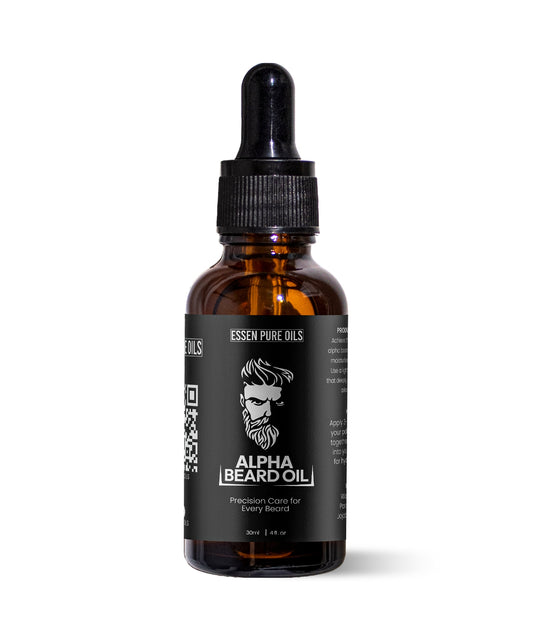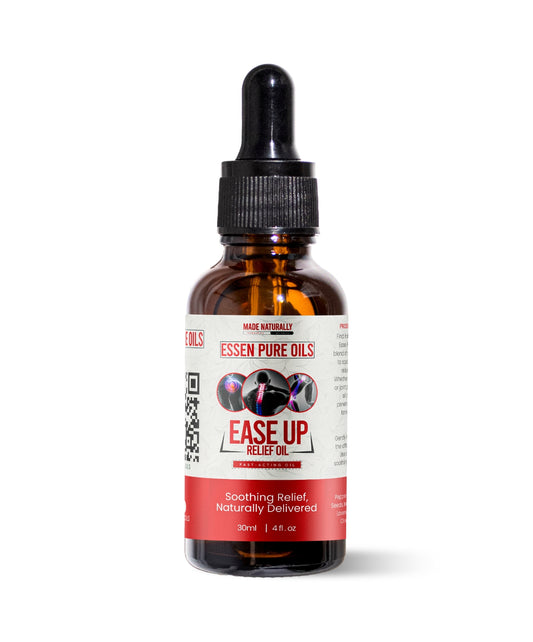Carrier oils are the hidden heroes of natural skincare. Although essential oils frequently attract the most attention due to their smell and medicinal benefits, carrier oils allow their safe and effective application. Without carrier oils, many essential oils can cause irritation or discomfort because of their high concentration.
But carrier oils are far more than just a medium for dilution. They are deeply nourishing substances that have fatty acids, vitamins, and antioxidants that can be helpful for your skin, hair, and body. Carrier oils are non-volatile and typically odourless and lightly scented, as compared to essential oils, which are volatile and have their own scent. They can therefore be used for a variety of purposes, including massage, skincare, aromatherapy, and even hair care.
Why Carrier Oils Matter
A carrier oil is a plant-derived oil, usually extracted from the seeds, nuts, or kernels of a plant, and it acts as a base to dilute essential oils before they are applied to the skin. They moisturize your skin, protect its natural barrier, and make it soft during massage therapy. These oils also make it possible to personalize skincare, since each carrier oil has its own set of nutrients and textures.
For example, a person with acne-prone skin might avoid heavy oils like olive oil but can benefit greatly from light oils like jojoba and grapeseed. Understanding these differences allows you to choose the best oil for your personal needs.
Popular Types of Carrier Oils
There are dozens of carrier oils available in the market, but a few are known because of their versatility and proven benefits. Let's talk about some of the most popular carrier oils in detail, focusing on their origins, textures, and practical uses.
Jojoba Oil
Jojoba oils are derived from the seeds of the jojoba plant, which is native to North America. It is unique because its structure closely resembles our skin's natural sebum. This makes it an excellent balancing oil for oily and acne-prone skin. It absorbs quickly, leaving little residue, and has almost no scent, which makes it a great choice for mixing with other essential oils.
Sweet Almond Oil
Pressed from almond kernels, sweet almond oil is the best oil in massage therapy because of its smooth texture and feel on the skin. It absorbs at a moderate pace, giving you just enough glide without making the skin overly oily. It's also high in vitamin E, which makes it soothing for irritation and dryness. This oil is best for people with sensitive skin, because it provides nourishment without being harsh.
Coconut Oil
Coconut oil is a well-known name in carrier oils. It has a light, silky feel and is virtually odourless, which makes it adaptable for massage, hair care, and body moisturizers. It's particularly effective for reducing protein loss in hair, which is why coconut oil is a must-have for deep conditioning treatments.
Grapeseed Oil
Grapeseed oil is known for its absorption and light texture. It is ideal for oily and acne-prone skin types because it doesn't leave a thick coating on the skin. It supports the skin barrier and can enhance skin texture because it is high in linoleic acid.
Avocado Oil
Avocado oil comes from the fruit's flesh, in contrast to many other oils that are extracted from seeds or kernels. It is thick, rich in nutrients, and ideal for dry skin. Because it contains vitamins A, D, and E, it absorbs gradually and provides deep hydration. Instead of being used in daily face oils, it is often found in night creams and masks.
Olive Oil
Mediterranean skincare traditions have been using olive oil for hundreds of years. It is nourishing for extremely dry skin, despite being heavier and taking longer to absorb. Olive oil provides a natural defence against environmental stresses, including dust, smog, and UV radiation, as it is high in antioxidants.
Argan Oil
Moroccan-native argan oil, sometimes referred to as "liquid gold," has become essential to hair and skincare routines. Because of its rapid absorption and light-to-medium consistency, it works well without leaving you feeling oily. Vitamin E and fatty acids, which are found in argan oil, can help minimize fine wrinkles and give your skin its flexibility again. Not to forget, it can also lessen frizz and add shine to hair.
Rosehip Oil
Rosehip oil is taken from the seeds of wild rose bushes. It's a lightweight oil that can be quickly absorbed, which makes it ideal for facial use. It has natural vitamin C and antioxidants, which help with pigmentation, scars, and overall skin brightness. For those looking for anti-aging benefits without heaviness, rosehip oil can be an excellent choice.
Sunflower Oil
Underrated, but sunflower oil is one of the most effective and affordable carrier oils. It's light, absorbs quickly, and works well for all skin types, including sensitive skin. A high amount of vitamin E inside protects the skin from free radical damage, while its non-comedogenic nature ensures it won't clog pores.
Hemp Seed Oil
Hemp seed oil is earthy, green, and nutrient-rich. It has a medium texture and medium absorption rate, which makes it suitable for both face and body care. It's particularly known because of having a balanced ratio of omega fatty acids, which can help reduce inflammation and calm irritated and acne-prone skin. For people dealing with redness and sensitivity, hemp seed oil offers a soothing solution.
How to Use Carrier Oils
The versatility of carrier oils makes them useful in almost every aspect of wellness. When mixing with essential oils, carrier oils ensure safety. For example, you can make a hydrating face oil by mixing lavender essential oil with jojoba. Coconut, almond, and grapeseed oils provide glide and nourish the skin during massage. After a bath or shower, carrier oils lock moisture into the skin and act as stand-alone moisturizers.
Hair care is another area where carrier oils shine. Coconut and argan oil are widely used to condition, strengthen, and restore shine. Applying a small amount to the scalp or ends can make a noticeable difference in hair health.
Storage is key when working with oils. They should be kept in dark glass bottles, away from sunlight and heat, to preserve their freshness. Using small quantities ensures the oil stays potent, as most carrier oils have a shelf life of 6 to 12 months, with some exceptions like jojoba, which can last longer.
Benefits of Carrier Oils
Carrier oils bring their own active benefits to skin, hair, and wellbeing. At the simplest level, carrier oils are excellent moisturizers. Their fatty acids form a light protective layer on the skin that can help reduce water loss and make skin feel soft and supple. Oils with oleic acid (like avocado and olive) are deeply nourishing and ideal for dry to mature skin, while oils higher in linoleic acid (like grapeseed and hemp seed) tend to be lighter and are often better for oily and acne-prone skin.
Many carrier oils offer vitamins and antioxidants that promote skin resilience and repair, apart from just hydrating your skin. For instance, rosehip oil is well-known for having vitamins A and C, which promote cell renewal and gradually lighten dark spots. Vitamin E and fatty acids found in argan oil can increase softness and lessen the appearance of fine lines.
Carrier oils are also known for hair and scalp care. Coconut and argan oil penetrate the hair shaft to reduce protein loss and restore shine; jojoba mimics scalp sebum and can help balance oil production; while lightweight oils like jojoba or grapeseed soothe the scalp without weighing hair down. For dry, brittle ends, a small amount of heavier oil applied to the tips provides immediate smoothing and protection.
When it comes to massage, carrier oils make the gliding process smooth, as they reduce friction, hands move smoothly, and the skin gets both the calming touch and the oil's conditioning benefits. Blending carrier oils with essential oils multiplies the therapeutic effect while keeping the blend gentle on skin.
Other benefits include versatility and ease of use. Carrier oils can be used alone as nightly moisturizers, mixed into creams for nourishment, or combined into simple DIY serums and hair masks. They are generally affordable and, when stored properly in dark glass away from heat and light, can work for many months.
Finally, carrier oils can have specific therapeutic actions, anti-inflammatory (hemp seed), antimicrobial (coconut, in some uses), or regenerative (rosehip). Their natural ingredients can be ideal for the health of your skin.
Choosing the Right Carrier Oil
Selecting a carrier oil that is appropriate for your skin type and the purpose of use is the best practice. Heavy oils like avocado and argan are best for dry and aged skin. Light oils like jojoba, grapeseed, and hemp seed are better for skin that is oily or prone to acne. While oils like almond and sunflower are good for people with sensitive skin.
Not to forget, your purpose of using these oils also matters. If your goal is massage, coconut and almond oil will give you the smooth glide you need. If you're looking for anti-aging, rosehip and argan oil will help your target specific skin concerns. For hair, coconut and argan are excellent choices.
Safety and Storage
Despite being natural, carrier oils can be harmful if not properly used and stored. A bad smell, cloudiness, or sticky texture are indications that the product is about to expire or has already expired. That's why patch testing is always advised before using a new oil, particularly if you have allergies or sensitive skin. When stored correctly, most oils remain fresh for months, which makes them both safe and economical.
DIY Remedies with Carrier Oils
One of the best things about carrier oils is their adaptability in DIY wellness remedies.
-
Facial Serum: Mix jojoba oil with a few drops of rosehip oil for a lightweight serum. It can brighten and give your skin the shine you've always dreamed of.
-
Relaxing Massage Oil: Mix almond and coconut oil with lavender oil, and you will get a final product that is best for massage.
-
Hair Nourishment Oil: Combine coconut oil, argan oil, and jojoba to get a hair oil that can restore shine and reduce frizz.
Conclusion
Carrier oils can help with every aspect of your wellness routine, whether you use them as moisturizers, in massage, or combined with essential oils for other purposes. At the same time, do remember that there is no one-size-fits-all oil because each oil has a unique texture and purpose.
By learning about their properties and experimenting by combining different oils, you can bring nature's simplest and most powerful remedies into your daily life.




